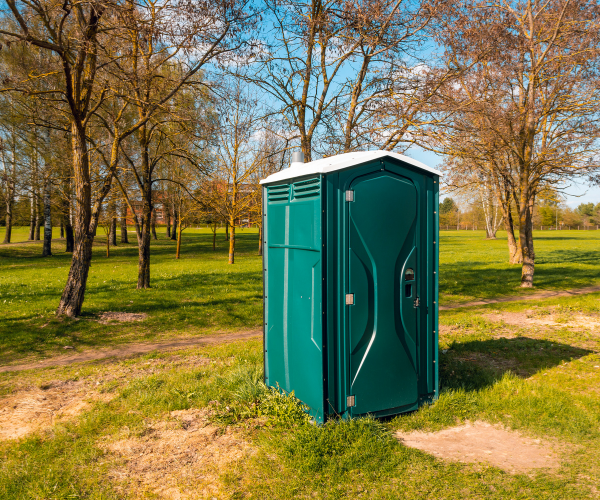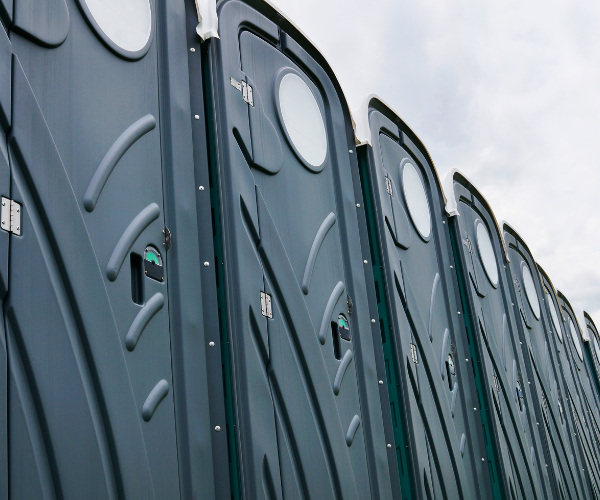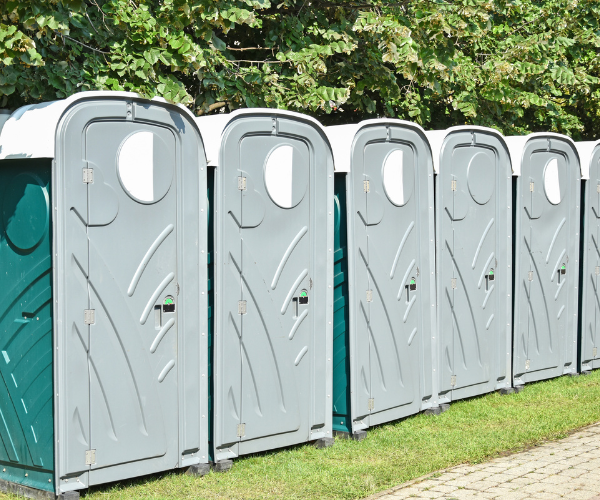Portable toilets offer several eco-friendly advantages, making them an excellent choice for environmentally conscious events and projects. Firstly, they significantly reduce water usage compared to traditional toilets, as they operate with minimal or no water at all. This conservation of water resources is crucial, given the increasing demand on and scarcity of clean water sources globally. Furthermore, the waste from portable toilets is collected and processed in a manner that is safe for the environment. Many modern units employ advanced waste processing techniques that convert waste into safe-to-dispose constituents or even beneficial fertilizers.Moreover, portable toilets contribute to a significant reduction in the need for permanent infrastructure, which can be both costly and environmentally damaging. By providing a temporary solution, they minimize the impact on landscapes and ecosystems that would otherwise be disturbed by the construction of permanent facilities. Portable toilets are also typically made from sturdy materials that can be recycled or repurposed at the end of their service life, reducing landfill waste.Many manufacturers are now prioritizing the use of eco-friendly materials in their products, such as recycled plastics, which further enhances their sustainability profile. Additionally, the transportation logistics of portable toilets have been optimized to reduce carbon emissions, with companies choosing more fuel-efficient methods of delivery and collection. This logistical efficiency helps to lower the overall carbon footprint associated with these units.For event organizers and construction managers, utilizing portable toilets can also be part of a larger sustainability strategy, often contributing to green certifications such as LEED (Leadership in Energy and Environmental Design). By selecting portable toilets for sanitation needs, you're choosing a solution that supports environmental stewardship and aligns with broader sustainability goals.

Portable Toilet Rentals in Dallas, Georgia
Call today for a free quote (770) 215-0134
Portable Toilet
Fast, Easy, & 100% Free To Get Started
Decades of Trusted Service
With over 40 years of experience serving Dallas, we pride ourselves on our deep community roots and unwavering commitment to providing the highest quality services. Our longstanding history reflects our dedication to customer satisfaction and excellence in every portable toilet service we offer.
Committed to Quality Service
Our company is dedicated to delivering quality service that exceeds expectations in every detail. We ensure all portable toilets are clean, well-maintained, and equipped to handle any event, embodying our commitment to reliability and superior customer experiences.
Fast, Reliable Delivery
We guarantee quick, dependable delivery for all your portable toilet needs. Our efficient logistics systems ensure that your requirements are met promptly, providing peace of mind and focusing on what truly matters at your event.
Convenient Portable Toilet Solutions in Dallas
Call for a Free Quote Today
(770) 215-0134
When it comes to portable toilet services in Dallas, we stand out for our dependable, reliable, and locally owned business model. Our reputation as a trusted community partner extends across nearby areas, providing exceptional facilities for events such as construction sites, parties, festivals, and weddings. Our commitment to quality ensures peace of mind for our clients, knowing they are backed by a team dedicated to excellence. We prioritize cleanliness and sanitation, using top-of-the-line products and services tailored to meet the diverse needs of our clientele. Those in search of a committed partner in portable sanitation find our comprehensive services indispensable. Our dedication to customer satisfaction makes us the preferred choice across a wide array of events and settings.


Our standard porta john rental units are durable and reliable for any commercial build site, housing development, public works project, or remodel job.Features include dome lighting, grated floors, and an “In-Use” locking mechanism for privacy and comfort. Regularly maintained, inspected, and cleaned by FusionSite at your location.

Developed as an alternative to full ADA-compliant restrooms, the Liberty is a spacious, wheelchair-accessible unit that can also be promoted as a family-sized restroom. Includes a patented flat-floor system for easy wheelchair access and maneuverability.Handrails, paper holder, and rotary latch are designed for simple, intuitive end-user operation.

Portable hand washing stations are essential for keeping your work site sanitary and clean. Features hands-free foot pumps, liquid soap, and paper towels.Perfect for job sites without water hookups, these units can handle hundreds of washes between services.
We Proudly Serve
Standard Portable Toilets
Standard Portable Toilets bring convenience and cleanliness to any location in Georgia.
High Rise Portable Toilets
Efficient and reliable High Rise Portable Toilets designed for urban events in Dallas.
Restroom Trailers
Luxurious Restroom Trailers offering comfort and style for events in Dallas with Georgia Container.
Roll off Dumpsters
Responsible Roll off Dumpsters service providing clean and efficient waste management in Dallas.
Septic Tank Cleaning
Trustworthy Septic Tank Cleaning service ensuring sanitation in Georgia for Georgia Container.
Grease Trap Cleaning
Comprehensive Grease Trap Cleaning services ensuring compliance and community health in Dallas.
Fencing & Barricades
Reliable Fencing & Barricades providing security and privacy for sites in Georgia.
Residential Storage
Dependable Residential Storage solutions offering flexibility and security in Dallas.
Dallas Portable Toilet and More
Getting a quote for a portable toilet in Dallas has never been more convenient or efficient. Our user-friendly process starts with simply navigating to our website where you'll find the option to get a quote right on the homepage. By clicking on one of the prominently displayed 'Get A Quote' buttons, you will be guided through a straightforward process designed with your convenience in mind. From there, you can easily fill out a short form that asks for your first name, last name, phone number, and email address. Once submitted, our dedicated team promptly responds to your inquiry, providing a comprehensive quote tailored to your specific needs. The entire process takes just a few minutes, allowing you to focus more on the planning of your event rather than being bogged down by logistical details.We understand the urgency of event logistics and ensure a seamless delivery experience from start to finish. After the quote is accepted, we jump into action, leveraging our years of experience and local network to deliver your portable toilets exactly when and where you need them. Whether you are planning a construction project, wedding, or festival, you can rest assured knowing that our expertly coordinated delivery schedule aligns perfectly with your timeline. Our professional team takes care of the setup and maintenance, ensuring that every unit is in top condition and ready for use.Our commitment to convenience extends beyond the initial stages, as we offer flexible rental agreements and customizable service options that cater to a diverse range of events and projects. As a locally-rooted company with boots on the ground in Dallas, we pride ourselves on offering personalized solutions that meet the unique needs of our community. The ease of our quote and delivery process means you can focus on more important aspects of your event, trusting us to handle your sanitation needs seamlessly and professionally.

Nestled in the heart of nature, Dallas, Georgia, is renowned for hosting vibrant outdoor events and festivals, like the annual Paulding Meadows Arts and Crafts Festival. Our portable toilets, beloved for their seamless integration with Dallas's scenic views, elevate the experience for any gathering, ensuring both convenience and cleanliness. Whether you're enjoying a community event or a family picnic at the picturesque Dallas City Park, our units stand ready to support every occasion, highlighting our essential role in the city's lively outdoor culture. With numerous attractions and recreational opportunities, Dallas stands as a beacon for natural enjoyment, and our portable toilets provide the necessary sanitation, ensuring events run smoothly and attendees are satisfied. Our durable units are specifically designed to withstand outdoor settings, offering cleanliness and reliability that complements Dallas's enchanting landscapes. Our portable toilet services are more than just a convenience in Dallas; they are part of enhancing the overall event experience. We are committed to becoming an integral part of the community by providing solutions that not only meet but exceed expectations, solidifying our status as the most trusted portable toilet provider in the area. Celebrate all that Dallas has to offer, knowing that your sanitation needs are impeccably managed by the best.
Choosing our portable toilet services in Dallas sets you up for success with any event or project you plan. Our commitment to excellence and strong community ties enable us to deliver exceptional service that reflects Dallas's unique character. Our reputation for reliability and top-notch quality makes us the most sought-after provider in the area, emphasizing our local knowledge and ability to deliver beyond expectations.The local appeal of our services is matched by the quality products we offer, built to enhance any occasion from community events to corporate functions. We pair our extensive local knowledge with superior customer service, ensuring a seamless experience from booking to delivery. Our portable toilets cater to any setting, with options that highlight the area's outdoor allure, positioning us as the best choice for anyone needing sanitation solutions in Dallas.When you choose us, you're opting for a partnership grounded in trust and mutual respect, knowing that your needs will be met with the utmost professionalism and care. Our expertise and dedication shine through every interaction, making us the go-to portable toilet service provider for a community that values integrity and quality.
We pride ourselves on offering fast, reliable portable toilet services in Dallas, designed to ensure that your needs are met without delay. Our experienced team is always ready to assist, leveraging our comprehensive knowledge of the area to provide timely deliveries that keep your event or project on track. With a vast selection of portable toilets, we cater to every need, ensuring nothing stands between you and success.Each unit is meticulously maintained, guaranteeing cleanliness and convenience from the moment of delivery. Our team handles every detail, from transportation to setup, so you can focus on what truly matters. Whether you're hosting a small gathering or a large festival, our portable toilet services are designed to adapt to any scale, providing reliability that you can count on.Our emphasis on quick service doesn't sacrifice quality; we understand the importance of both speed and superior standards in ensuring customer satisfaction. Discover a seamless solution to your sanitation needs with our dependable, high-quality portable toilets, tailored specifically for the needs of the Dallas community.
Discover More About Our Dallas Portable Toilets
Renting a portable toilet in Dallas is a straightforward and hassle-free process. Our website is designed to make this as convenient as possible; simply visit our homepage, where you'll find easy access to the necessary forms at both the top and bottom of the page. To start, you can click any of the prominently featured 'Get A Quote' buttons located throughout our website. This action will lead you to a simple form where you'll need to provide some basic information, including your first name, last name, phone number, and email.This streamlined approach ensures that you receive prompt attention from our experienced team, who will tailor a quote to match your specific needs and requirements. The form is concise, requiring only essential details for us to understand your event or project context. Once your information is submitted, our team quickly reviews your request, crafting a response that includes pricing, availability, and any additional information that may assist in your planning process.After agreeing to the proposed quote, you can expect efficient and timely delivery of the portable toilets to your specified location. Our commitment to excellent customer service means that we handle every detail, from logistical coordination to final setup, ensuring a seamless experience from start to finish. The entire process, from request to delivery, is designed to be completed quickly and efficiently, allowing you more time to focus on organizing a successful event.Whether you are coordinating a wedding, concert, corporate event, or construction project, our comprehensive rental services are tailored to meet the diverse demands of Dallas and its surrounding areas. With a focus on reliability and quality, you can be confident in choosing us as your go-to solution for all portable toilet needs.
Understanding the typical delivery timeframe for portable toilet orders is crucial for planning any event or project. Generally, the delivery time can vary based on several factors, including the specific location in Dallas, the number of units required, and the current demand. However, our efficient logistics systems are designed to ensure that your order is fulfilled within the shortest possible timeframe without compromising on quality. This typically means a window of 24 to 48 hours from the time you confirm your order.We pride ourselves on our ability to accommodate urgent requests whenever possible. Our team's local knowledge and extensive experience allow us to navigate the complexities of event planning with ease, ensuring timely delivery tailored to your schedule. Once your order is placed, you will receive a detailed confirmation that outlines the expected timeframe and any pertinent delivery details. We encourage open communication between our team and our customers to address any specific time constraints or special instructions you might have.For larger events or remote locations, we recommend booking well in advance to secure your preferred delivery date and time, allowing us to coordinate resources effectively. Our goal is always to exceed your expectations with our prompt and reliable service. Rest assured, our trained staff is committed to managing each aspect of the delivery to ensure your portable toilets arrive exactly when needed, ready for immediate use.Our commitment to customer satisfaction means that no matter what the situation, we strive to provide flexibility and transparency in all dealings, contributing to a seamless rental experience. Whether you are involved in short-term events or long-term projects, we adapt to your schedule, ensuring a hassle-free process and impeccable service delivery.
Yes, we can service any type of event or construction services with our comprehensive range of portable toilet solutions. We cater to a diverse array of events such as festivals, sporting events, and weddings, ensuring that every need is met with professionalism and care. Additionally, we offer our services to corporate events, family reunions, and any other type of special events where sanitation is a priority. Our team is equipped to handle every aspect of the service, ensuring a successful and sanitary outcome.Our inventory includes luxury restroom trailers, standard porta potties, roll-off dumpsters, fencing, barricades, and more specialized units such as ADA-compliant facilities. By providing robust options like portable sinks and hand sanitizer stations, we ensure your guests' hygiene needs are fully covered. Our versatile offerings ensure that we can adapt to the specific requirements of your event, maintaining the highest standards of cleanliness and convenience.With experience in construction site services, we understand the unique challenges and needs of such environments. Our portable toilets and support units are durably constructed to withstand harsh conditions while providing reliable service throughout. Whether for long-term projects or temporary jobs, our solutions are tailored to enhance productivity and comfort on site.We pride ourselves on delivering outstanding service for all occasions, ensuring our units contribute positively to the overall experience of those attending. As a trusted partner in Dallas's event and construction circles, we are committed to continuing our legacy of excellence, supporting your efforts with dedication and outstanding service.

